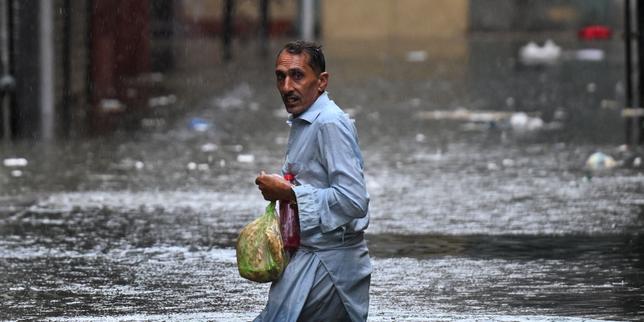

In the face of unprecedented torrential rains, Pakistan, a nation often regarded as one of the most vulnerable to the impacts of climate change, is experiencing a series of significant weather-related challenges. Recent monsoon activities have resulted in severe flooding, affecting numerous communities across the country. Despite these daunting circumstances, Pakistani authorities are actively implementing a range of emergency measures and alerts to safeguard the population, which has historically borne the brunt of such natural calamities.
The recent monsoon rains have proven to be particularly intense, reflecting the broader trend of climate variability seen in recent years. This climatic shift has contributed to the increased severity and frequency of weather events, placing added pressure on the country’s emergency response systems. According to official reports, more than fifty individuals have tragically lost their lives over a 24-hour period due to these floods, highlighting the urgent need for resilient strategies in managing natural disasters.
Efforts to address the immediate impacts of this monsoon period are multifaceted. Authorities have been fervently disseminating warnings and directives to the public, aiming to minimize casualties and ensure the safety of at-risk populations. This proactive communication is essential in navigating the complexities presented by such relentless weather patterns. Passionate local communities are also playing a key role, as they mobilize to support each other, showcasing the strength and unity prevalent in Pakistani society in times of adversity.
Beyond immediate relief efforts, there is a growing focus on developing sustainable infrastructure to better withstand future climatic events. This involves rethinking urban planning, enhancing drainage systems, and establishing effective early warning protocols. While these efforts are ongoing, they represent a critical component of a long-term strategy to enhance the nation’s resilience against the inevitable challenges posed by climate change.
Moreover, there is an increased collaboration with international organizations and climate experts to leverage global best practices in disaster management and response. This cooperative approach aims not only to alleviate short-term impacts but also to enrich the nation’s preparedness and adaptability in the longer term. It brings a sense of reassurance to the communities knowing that their government is taking comprehensive and informed steps to protect their well-being and livelihoods.
In summary, while the challenges posed by the current monsoon season in Pakistan are significant, the nation’s response showcases a commitment to resilience and proactive management. Through a combination of immediate relief efforts, sustainable development planning, and international collaboration, Pakistan is paving a path toward greater climate resilience. The journey is ongoing and will require continued dedication and innovation, but the strides made thus far are indeed a promising testament to the nation’s capacity to embrace and overcome the challenges of a changing climate.
Source: {link}
